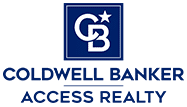5 FHA Mortgage Quirks ALL Buyers Should Know
The Federal Housing Authority (FHA) has experienced a big surge in business over the last few years as the overall real estate market has rebounded from the major recession. Thanks to allowing lower credit scores and an extremely low down payment, many people from a wide range of social classes use FHA to buy a home.
However, for those that are interested in using an FHA insured mortgage to buy a home, there are a few FHA mortgage quirks to the program that you need to be aware of.

Mortgage Insurance Lasts the Length of the Loan
Mortgage insurance is common with conventional loans, USDA loans and FHA loans. If a person buys a home and pays less than 20% as a down payment, the borrower will be asked to pay a percentage of the loan each month as mortgage insurance. The percentage with other loans can vary based on a range of factors such as credit score, debt to income ratio and the presence of reserves.
However, with FHA, there are two main differences. First, the mortgage insurance is paid in 2 different ways. When the loan is closed the borrower will pay 1.75% of the outstanding balance as a one-time fee. This fee is rolled in to the closing costs. In addition, the borrower will pay 0.85% of the outstanding balance as a fee. This fee is divided by 12 and added to the monthly mortgage payments.
The other main difference is the fact that once an FHA loan has the monthly mortgage insurance applied; it is there for the life of the loan. Most people choose to refinance their mortgage after the home has appreciated in value.
Extra Borrower Does Not Have to Live in Home
FHA has a clause, commonly called the “kiddie condo loan”, that will allow a non-occupying co-borrower to sign on the mortgage without requiring that the person actually lives in the home. In essence it allows a person to buy a home and enjoy the perks of owning property by relying on the strength of their co-borrower’s strong credit and income. As you might guess, there are special rules for this type of FHA loan.
- FHA prefers that the co-borrower that does not intend to live in the home be a relative to the main borrower. If the two borrowers are not related, then the loan to value will not be allowed over 75% of the appraised value of the property.
- The non-occupying co-borrower must have a primary residence with the USA
- The non-occupying co-borrower will be subject to the same credit, income and residency requirements as the main borrower.
- Only single family units, or approved condos, are allowed. Two unit, three unit or 4 unit properties are not eligible.
Here are just a few common examples of a kiddie condo loan
- The main borrower is self-employed and does not have 2 years of business tax returns
- The main borrower is enrolled in college and does not yet have high enough income to qualify for a loan
- The main borrower has recently changed jobs to a different industry
- The main borrower recently finished service in the military and has only worked as civilian for a short time
Waiting After Bankruptcy
Most conventional loans have strict waiting periods for people that formerly filed for bankruptcy. Since there are 2 types of bankruptcies for individuals, FHA has 2 different rules.
A Chapter 7 bankruptcy is usually reserved for consumers that have accrued mostly unsecured debt and do not have assets with any value. It is common for people that file a Chapter 7 to have mostly credit card debt along with unsecured personal loans and medical debts. People that have filed a Chapter 7 must wait 2 years after their bankruptcy discharge date before applying for an FHA loan.
A Chapter 13 bankruptcy plan is considered a restructuring plan. With this type of bankruptcy, the person’s documented income is used to determine a percentage that will be paid back to their creditors. The creditors agree to accept a lessor amount if the debt is unsecured. Secured debt will be paid back in total. It is possible for people to qualify for an FHA loan only 1 year after their plan has started, but only if the bankruptcy court approves. After the Chapter 13 bankruptcy is discharged the borrower can immediately apply for an FHA loan.
Stricter Appraisal Requirements
In the latter part of 2015 FHA released new guidelines in the HUD handbook that specifically dealt with changes in the appraisal requirements. Some of the changes are simply different words included in the language while other changes deal with how the home appraisal is conducted.
- Access attic and crawl space – the appraiser is required to access the crawl space and attic in order to look for specific items.
- Photography angles – The photos that an appraiser makes of a comparable sale need to be made at an angle that shows both the side of the house as well as the front of the home. This is the same way an appraiser makes photos of the subject home.
- Commercial airplane traffic routes – Appraisers are now being asked to look at maps if a home is near an airport and provide commentary on the home’s ability to sale. These are specific maps that outline noise levels at various distances from the airport.
- Remaining life of the roof – If the roof appears to have only 2 years, or less, of life remaining then the appraiser has to note it in the report. The home will also need to be inspected by a professional roofer.
- 3 ways to determine value – In the world of appraisals there are 3 methods for determining a home’s value:
- Sales Comparison – This is the most common method. Appraisers look at 3 to 5 recent sales that are similar in style, design and location as the subject home
- Income Approach – Normally used for rental properties, this method uses net income divided by capitalization rate.
- Cost Approach – This method requires the appraised to find the value of the vacant land and then add it to the cost of the structure.
Appraisers are now asked to consider all 3 methods when determining the value of a home, but not required to complete all 3 methods.
Self-Employment Restrictions
People who are self-employed can qualify for an FHA loan if they show personal & business tax returns for the previous 2 calendar years. According to FHA, if a person owns at least 25% of a business then the income from the business can qualify.
The income from the business cannot be dropping. If the income drops 20%, or more, from one year to the next then the borrower may not qualify for the loan.
When the person presents the tax returns and proof of assets (i.e. savings accounts, checking accounts, retirement accounts) any money needed to close the loan is not allowed to come directly from any type of business account.
If the person does not have the copies of the tax returns, then the mortgage lender or the borrower may request copes directly from the IRS.
In addition to the tax return requirements a self-employed borrower may also be asked to provide balance sheets as well as the most up to date profit and loss statements.
Summing Up FHA Mortgage Quirks
Although all of these quirks will likely not apply to your loan, it is important to be aware of these scenarios. If you are unsure about if your situation falls in to one of these categories, your loan officer should be able to answer your questions and help you with your FHA mortgage application.
Additional FHA Mortgage Resources
FHA Loan Requirements at fha.com
5 FHA Mortgage Quirks EVERY Home Buyer Should Know https://t.co/vX9qiOD05K #fha #mortgages #realestate pic.twitter.com/O9H7MTkWLY
— Anita Clark (@Anita_Clark) September 17, 2016
FHA Mortgage Issues Buyers Should Know About
About Anita Clark Realtor
Anita Clark has written 646 posts on this blog.
by Anita Clark Anita is a residential Real Estate Agent in Warner Robins Georgia, with Coldwell Banker Access Realty (478) 953-8595, aiding buyers and sellers with all their real estate questions on her Warner Robins blog.




